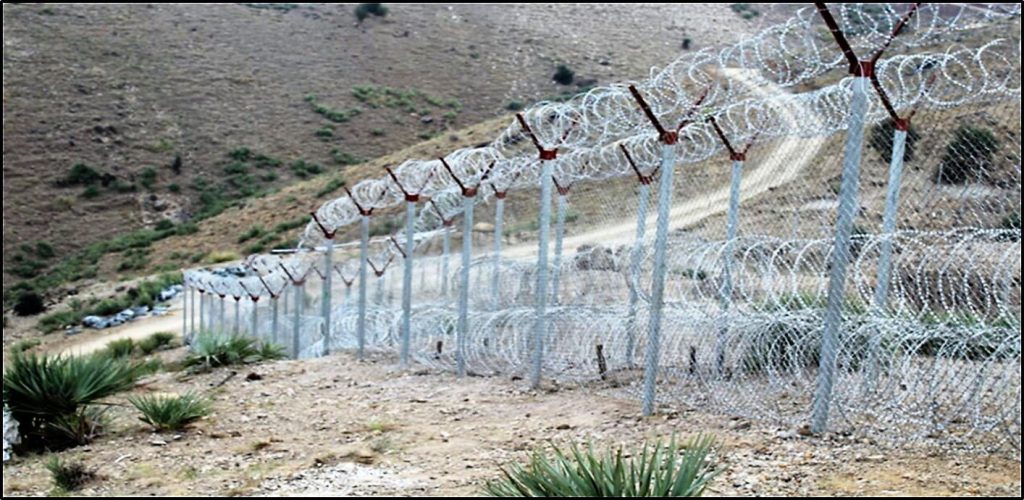The lack of security cooperation between Pakistan and Afghanistan intensifies the challenge of counterterrorism efforts
Pakistan’s geostrategic location offers both advantages and challenges. The country historically had troubled relations and contentious borders with three of its neighbours: India, Afghanistan and Iran. Afghanistan is particularly significant in this regard, as unresolved border management issues continue to pose problems. Stretching over 2,600 kilometers, the border between Pakistan and Afghanistan has witnessed a mix of historical dispute, security concerns, and the movement of refugees.
Despite being the de facto border, Afghanistan has never officially recognized the Durand Line, leading to a prolonged historical dispute. This disagreement has set the stage for a complex relationship fraught with territorial tensions and unresolved grievances. Though, at present, in order to improve bilateral relations Pakistan and Afghanistan must focus on enhancing their security cooperation. For the reason that Pakistan and Afghanistan are currently lacking in security cooperation.
The lack of security cooperation between Pakistan and Afghanistan intensifies the challenge of counterterrorism efforts. This gap becomes particularly obvious when attempting to engage with the Afghan Taliban government on counterterrorism initiatives.
The authorities in Pakistan asserts that anti-Pakistan terrorists, especially the debarred Tehrik-e-Taliban Pakistan (TTP) have safe havens in Afghanistan, whereas the government of Afghanistan denies these claims. According to the reports of UN Security council’s Analytical Support and sanctions Monitoring Team the “ TTP benefited the most of all the foreign extremist groups in Afghanistan from the Taliban takeover.”
Numerous attempts have been undertaken to discuss the TTP issue with the Afghan Taliban; however, these attempts have not yielded positive outcomes. The problem has been raised through official channels, delegations of religious scholars and tribal elders have been sent to Afghanistan to convey Pakistan’s apprehensions.
Moreover, Pakistan has conducted cross-border military operations and counter-strikes in response to TTP terrorist attacks on Pakistani forces. Despite all these actions, the terrorist violence continues unabated and relations have steadily deteriorated since 2021, when the Taliban came to power. This outcome is divergent from policymakers’ expectations that the Taliban’s return to power in 2021 would help Pakistan secure its western border.
By contrast, in the last few months there has been a significant escalation in border tensions and increased terrorist attacks targeting Pakistan’s security forces. The upsurge in violent activities by TTP from their hideouts in Afghanistan caused increasing threats to Pakistan’s security.
Afghanistan-based terrorist groups pose a significant threat not only to Pakistan’s security but also to the regional stability. Taliban are particularly enthusiastic to attract Chinese investment due to their global isolation. Consequently, Pakistan should collaborate with China to ensure that investments are contingent upon the Taliban’s implementation of concrete Counter-terrorism measures. Therefore, Pakistan should engage with China, Russia, and Iran, to exert collective pressure on the Taliban. Pakistan should urge them to take effective actions against terrorists’ groups operating within Afghanistan’s territory.
In order to prevent cross-border terrorism, Pakistan needs to ensure that no internal space is available to militants and their backers. For instance, the Foreign Office issued a statement on 13th March 2025 that the terrorists involved in the attacked on the Jaffar Express were in contact with their handlers in Afghanistan. Thus, neutralising these elements is essential to gaining an upper hand over terrorist groups.
Therefore, for improved and cordial relations, Pakistan and Afghanistan need to work together to mitigate mutual threats, enhance border security, and foster a more stable environment along their shared border. There is often a claim, supported by evidence, that Pakistan has undertaken many constructive measures to curb volatile activities originating from Afghan territory. These efforts include enhanced border security, intelligence sharing, and targeted military operations aimed at dismantling terrorist networks. However, it is rarely seen that Afghanistan has taken any strict measures to prevent its territory from being used for terrorist and violent activities against Pakistan.
The government of Afghanistan should take these security concerns seriously. Uncooperative, uncompromising, and non-collaborative behaviour from the Afghan Taliban rulers is not the right approach given the changing security dynamics of the region. The Afghan Taliban rulers, should adopt a strategy to promote regional stability and prevent the spread of violence and extremism across Afghanistan’s border.


